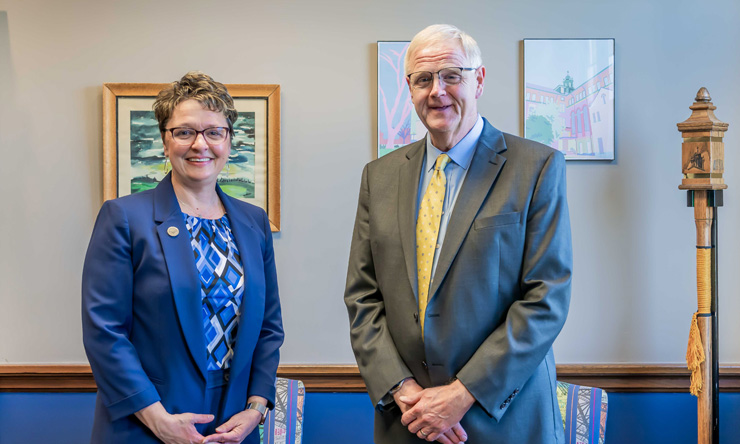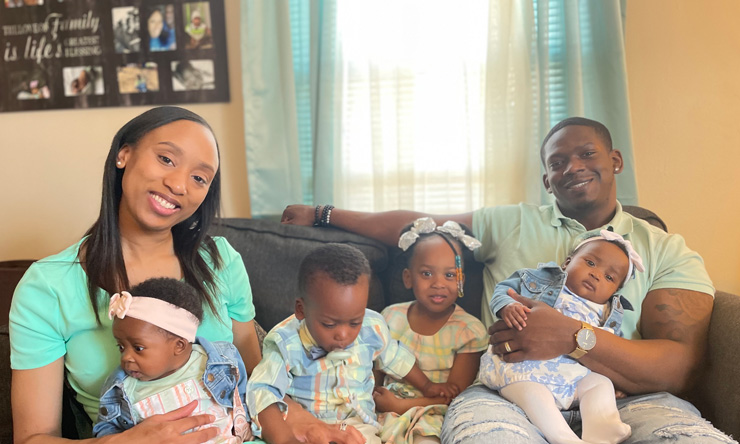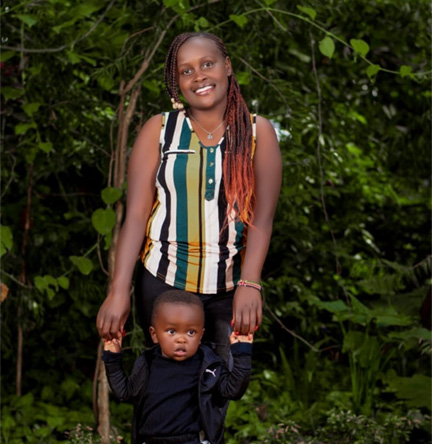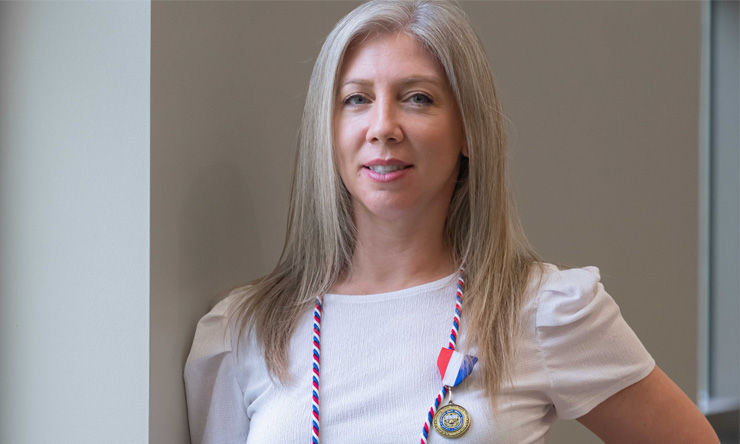Robert Philibert '83, MD, PhD, is a pioneer.
Not in the sense of an explorer mapping the New World. Rather, the University of Iowa professor and research leader is exploring the frontiers of stem-cell research, genetics and the emerging science of the relationship between stress, immune activation and cancer.
From his lab in Iowa City, where he works as a professor of psychiatry, neuroscience and genetics, Philibert spends most of his time doing what he likes best: research.
"When I graduated from St. Ambrose in '83, I was accepted into Johns Hopkins, but I decided I wouldn't be happy there," he said. "So I went to Iowa instead. When I got here, I asked one of the professors about his neurotransmission research, only because I was told that was the polite thing to do.
"Turns out I found his research very fascinating. I love research."
Now, Philibert's own groundbreaking research offers hope to people suffering from alcoholism, drug addiction, Alzheimer's, schizophrenia and other related diseases loosely organized under "behavioral genetics."
It is research that looks for connections between an inherited genetic anomaly that predisposes someone to psychosocial disease like schizophrenia and the environmental factors that stimulate that genetic anomaly. The results may provide solutions to some of society's most debilitating psychological and sociological diseases.
One goal of the research is to determine early on (in many cases through a simple blood test) if an individual has a genetic propensity for drug and/or alcohol dependency, or a host of psychosocial diseases. The ultimate goal is to prevent those diseases from occurring.
"Take schizophrenia, for example," Philibert said. "Typically, the first onset of schizophrenia occurs in a person's late teens or early twenties. We may never find a cure, but if we can determine an individual has the gene that may someday result in schizophrenia, we could prevent onset."
Underpinning all of his research is a passion tempered with humility and justifiable excitement that he is deeply involved in important scientific research. He also is quick to point out he is not working in a vacuum.
"I believe I'm doing groundbreaking work," Philibert said, "and I believe I can help people. But everyone else can help people, too. What I do, I do with the collaboration of others.
Nothing happens in isolation. Everything in my laboratory is paid for with tax dollars, for example. So what I do is dependent on the largesse of society and the collaboration of like-minded colleagues."
The doctor also gives credit to his alma mater, noting a liberal arts-based St. Ambrose education provided a philosophical foundation upon which he built his scientific work.
"Perhaps more than anything, Ambrose teaches you how to contemplate taking the leap of faith," Philibert said. "Ambrose teaches you that there is good in the world. There are disenfranchised people in this world without hope, and what I strive for is to give hope to those who don't have any. Hope is cheap, but priceless. Ambrose taught me that."
–Steven Lillybeck
Education Together
We are pleased to announce that St. Ambrose University has signed a new joint agreement with Mount Mercy University as we explore a potential strategic combination. We celebrate this exciting news not only for each of our universities and our communities, but also for the region.
Share This Story




